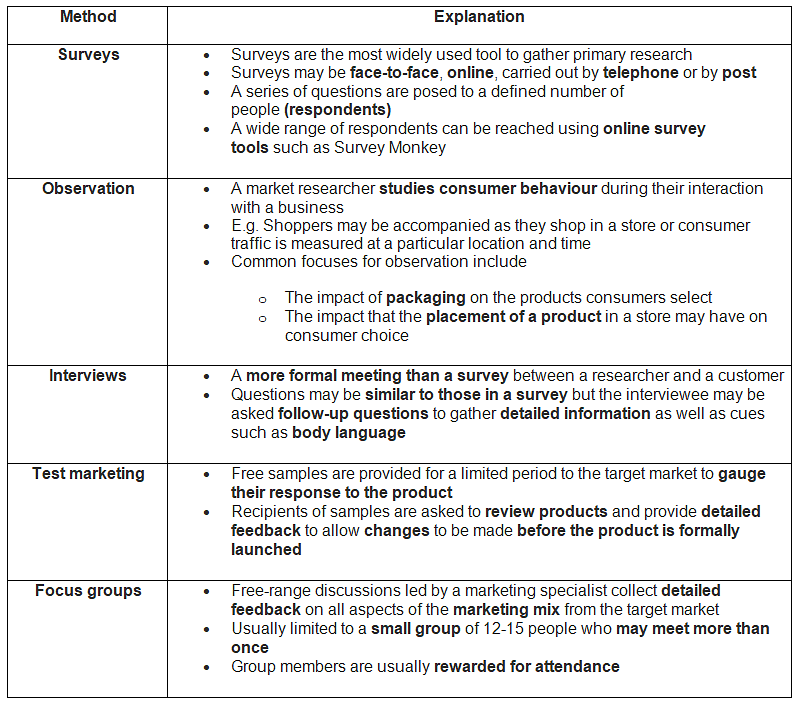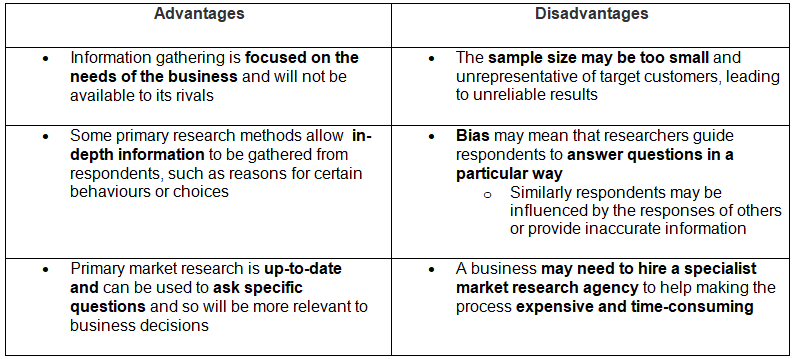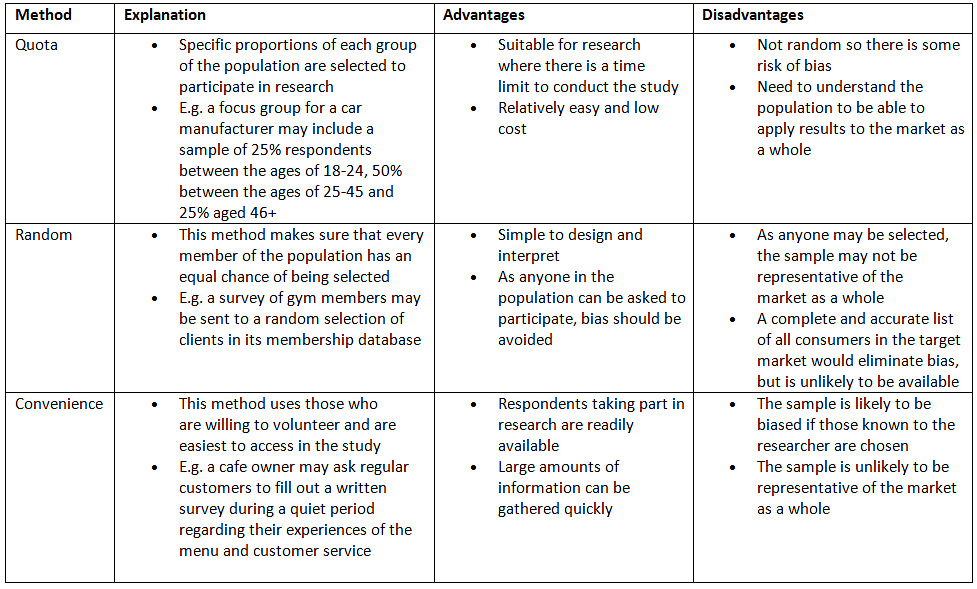Class 10 Exam > Class 10 Notes > Business Studies for GCSE/IGCSE > Primary Market Research
Primary Market Research | Business Studies for GCSE/IGCSE - Class 10 PDF Download
Primary Research
- Primary market research involves directly obtaining information from consumers within the target market.
- It focuses on gathering new, tailored data that addresses the specific needs of the business conducting the research.
- Common methods of primary market research include surveys, interviews, and focus groups.
- These methods often utilize questionnaires to structure research inquiries and gather responses efficiently.
- A business often utilizes multiple methods of primary research to establish a dependable comprehension of the market.
- The collected data is then scrutinized to draw data-driven conclusions, such as determining pricing strategies for new products and selecting optimal distribution channels.
- Historically, primary research has been challenging and costly for businesses to conduct.
- The emergence of social media platforms like Facebook, Twitter, Instagram, and TikTok offers businesses remarkable opportunities for primary research.
- Communication between businesses and customers through these platforms is nearly instantaneous.
- Online surveys or polls enable businesses to gather large volumes of responses quickly at minimal cost.
- Setting up online polls takes only a few minutes, with software automatically collecting and analyzing results.
- Electronic means allow online businesses to collect primary market research efficiently.
- Customers can promptly provide feedback on products or share innovative ideas for product enhancements.
- Such feedback can aid businesses in developing extension strategies throughout a product's life cycle.
- Communication between businesses and customers through these platforms is nearly instantaneous.
Primary Market Research Methods

Evaluating Primary Market Research

The Purpose of Sampling
- Primary market research typically involves surveying a small yet representative subset of the overall market.
- Collecting data from the entire market is impractical due to cost and time constraints.
- Researchers employ carefully crafted sampling techniques to draw accurate conclusions about customer preferences and behaviors.
- Generally, larger sample sizes yield findings that better reflect the broader market.
- The selection of a sampling method depends on various factors, such as:
- Available time
- Familiarity with the target population
- Expertise of the researcher(s)
- When time is limited, a quota sample may be the most suitable method, as it is quick and easy to organize.
- If a business possesses in-depth knowledge about the target population, a random sample is likely to yield unbiased research data that can be analyzed insightfully.
- In cases where researchers lack market research experience or expertise, a convenience sample can provide valuable data that is easily interpretable.
Question for Primary Market ResearchTry yourself: What is the purpose of primary market research?View Solution
Comparison of Different Sampling Methods

The document Primary Market Research | Business Studies for GCSE/IGCSE - Class 10 is a part of the Class 10 Course Business Studies for GCSE/IGCSE.
All you need of Class 10 at this link: Class 10
|
70 videos|93 docs|26 tests
|
FAQs on Primary Market Research - Business Studies for GCSE/IGCSE - Class 10
| 1. What are some common methods of primary market research? |  |
Ans. Some common methods of primary market research include surveys, interviews, focus groups, observations, and experiments.
| 2. Why is customer feedback important in primary market research? |  |
Ans. Customer feedback is important in primary market research as it provides valuable insights into customer preferences, satisfaction levels, and areas for improvement, helping businesses make informed decisions.
| 3. How can primary market research be evaluated for its effectiveness? |  |
Ans. Primary market research can be evaluated for its effectiveness by looking at the quality of the data collected, the relevance of the findings to the research objectives, the accuracy of the analysis, and the impact of the research on decision-making.
| 4. What are the advantages of using online polls in primary market research? |  |
Ans. Online polls offer advantages such as cost-effectiveness, quick data collection, the ability to reach a large audience, easy analysis of results, and the option for respondents to remain anonymous.
| 5. How has primary market research evolved in the digital age? |  |
Ans. In the digital age, primary market research has become more technologically-driven, with online surveys, social media analytics, and big data analysis playing a significant role in gathering and interpreting consumer insights.
Related Searches















